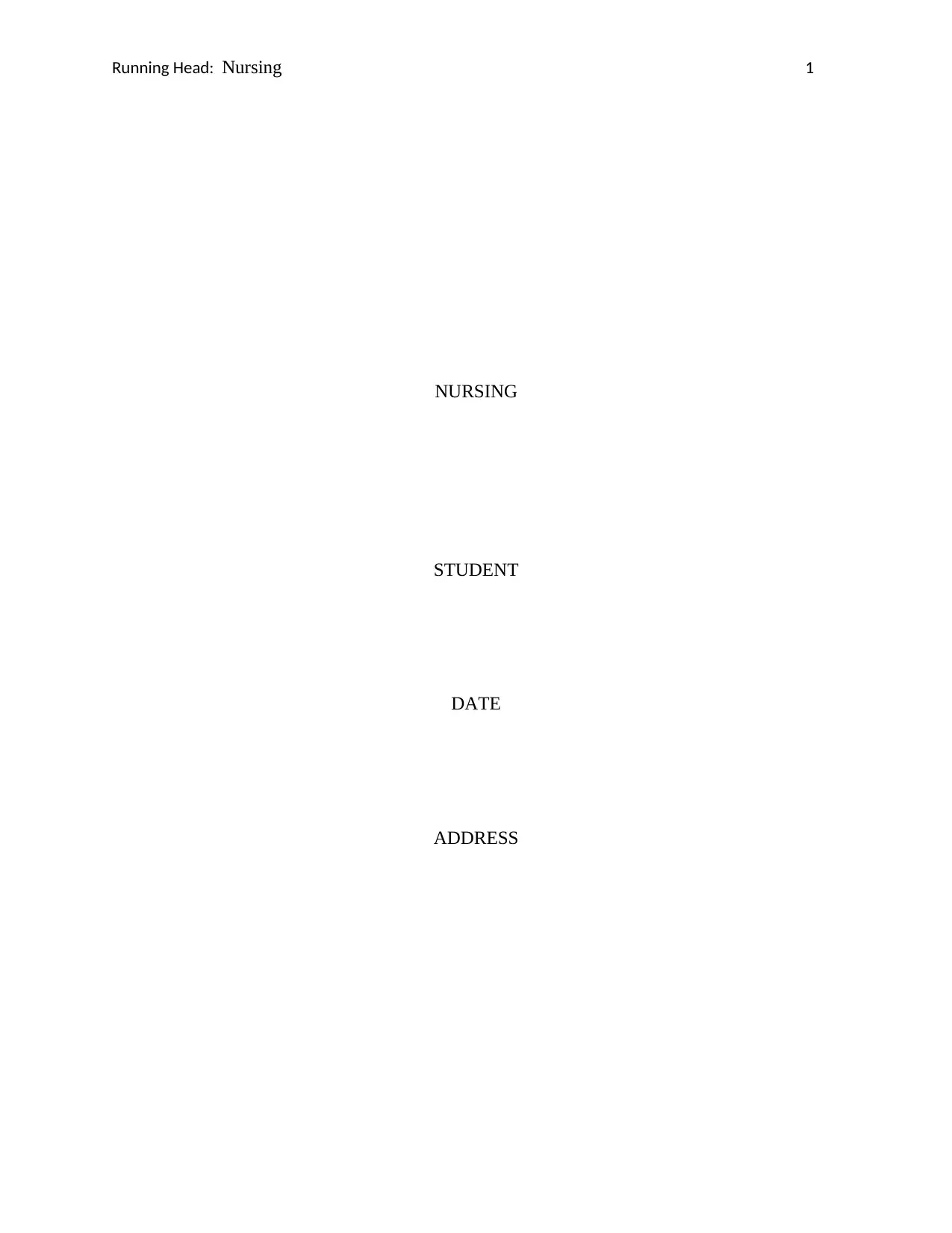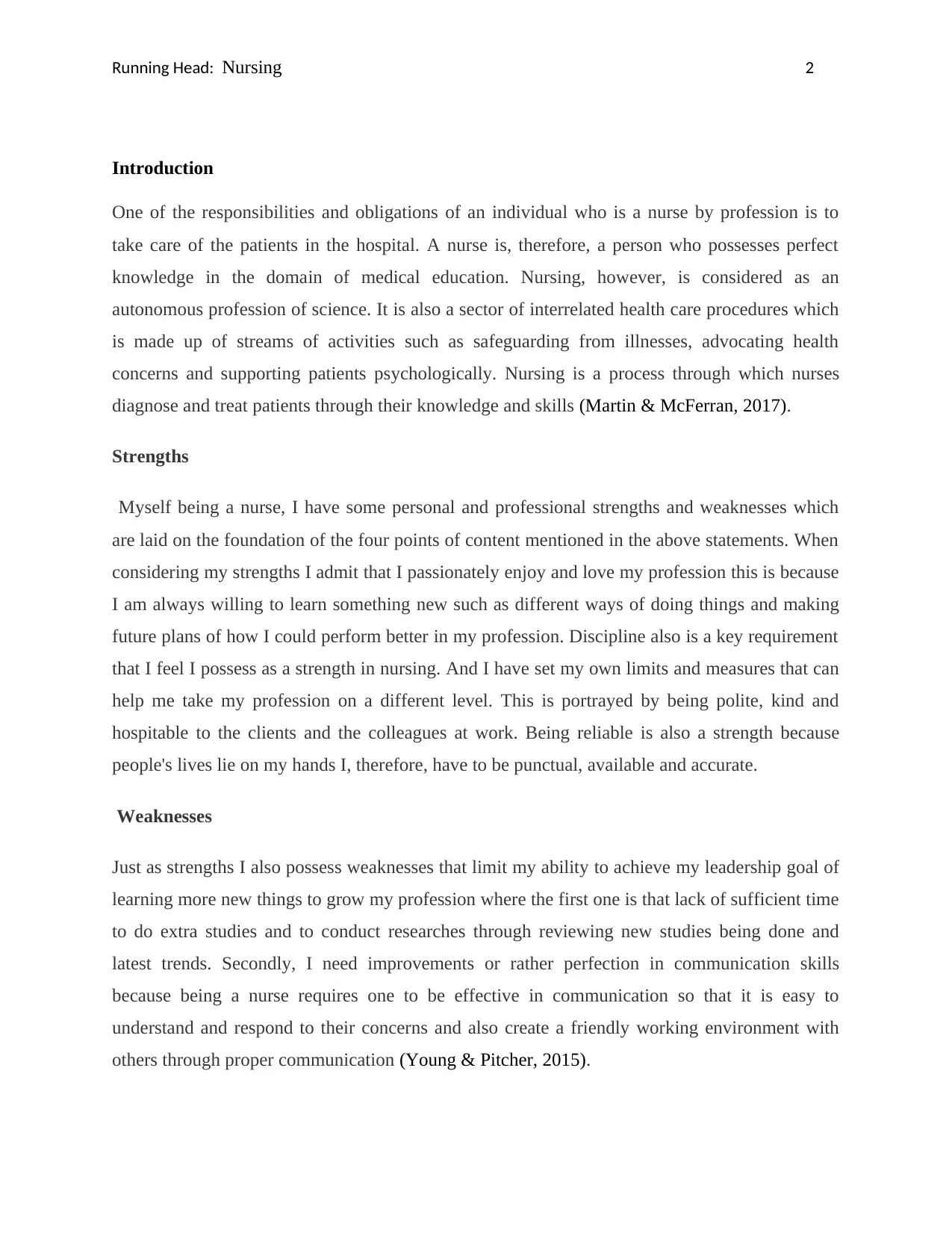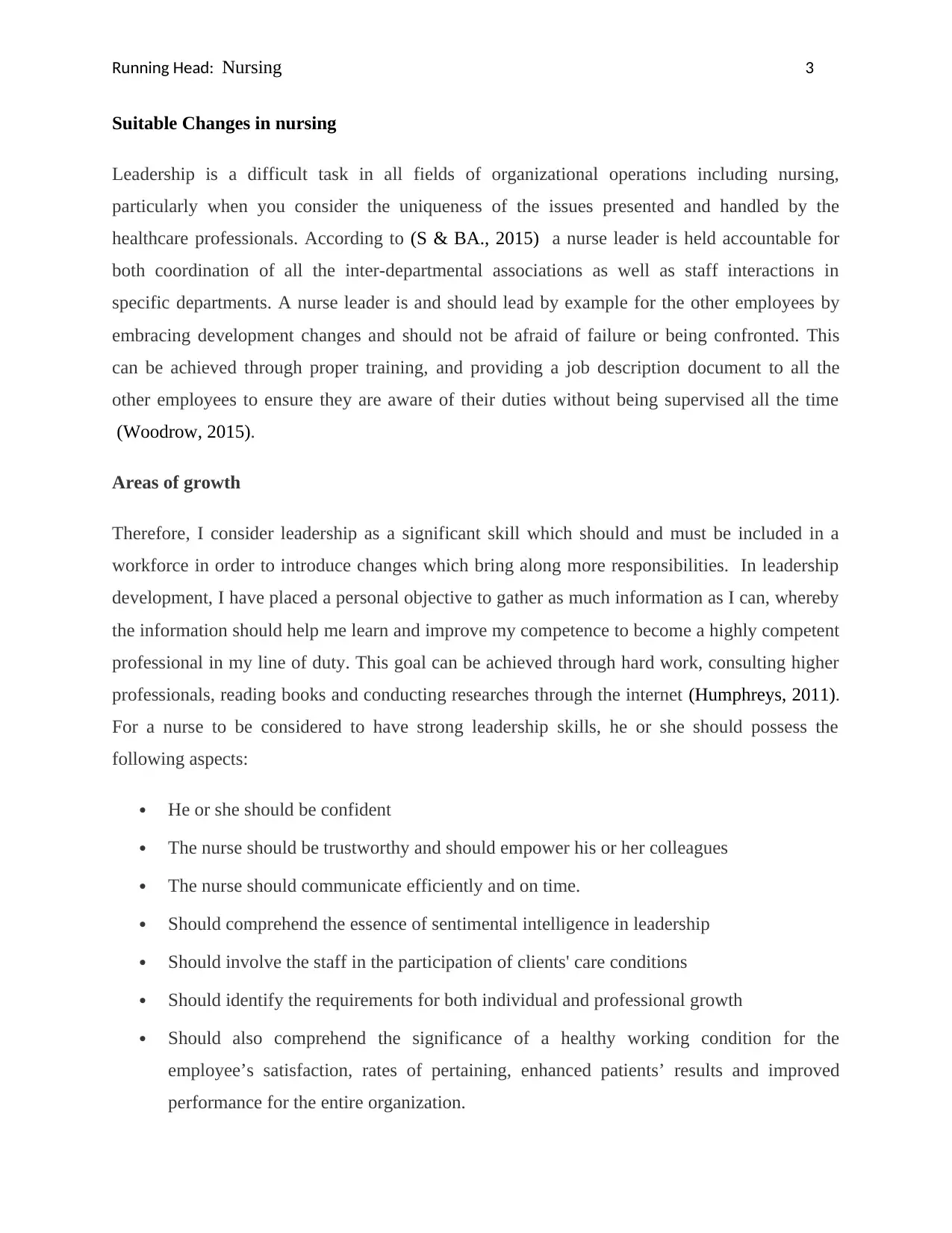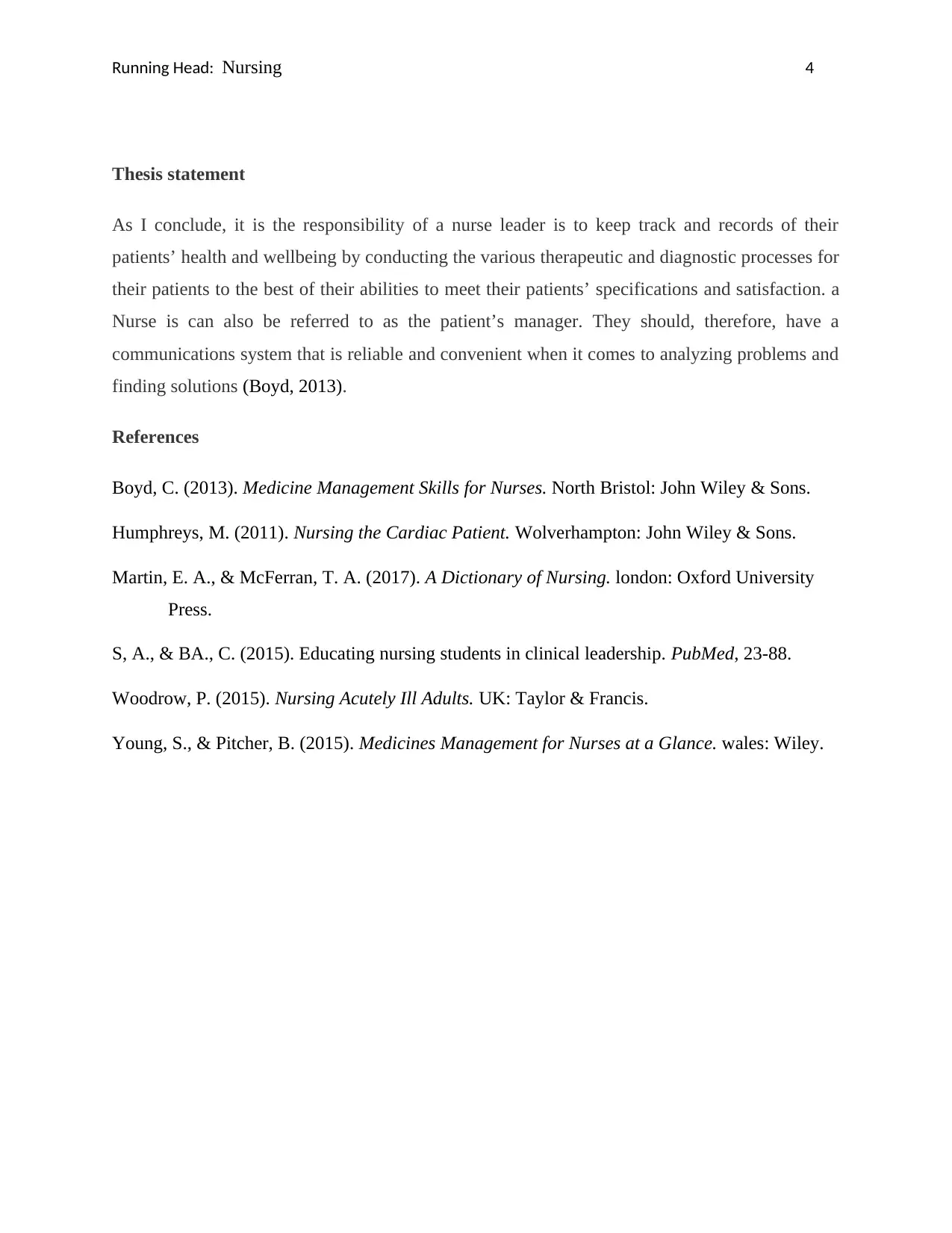Nursing Leadership Reflection: Skills, Changes, and Goals
VerifiedAdded on 2023/01/03
|4
|994
|99
Report
AI Summary
This report provides a comprehensive reflection on nursing leadership, based on an assessment of personal and professional skills. The author, a nursing student, identifies their strengths, such as a passion for the profession, discipline, and reliability, and acknowledges weaknesses like a lack of time for extra studies and the need for improved communication skills. The report discusses the importance of leadership in nursing, emphasizing the need for nurse leaders to set examples, embrace change, and provide clear job descriptions. It outlines areas for personal growth, including gathering information and improving competence through research and consultation. The author sets a goal to enhance leadership skills, focusing on confidence, trustworthiness, efficient communication, and understanding the importance of a healthy work environment. The report concludes by emphasizing the nurse leader's responsibility to monitor patients' health and well-being through effective communication and therapeutic processes. The report includes references in APA format and addresses the rubric requirements of the assignment.
1 out of 4











![[object Object]](/_next/static/media/star-bottom.7253800d.svg)